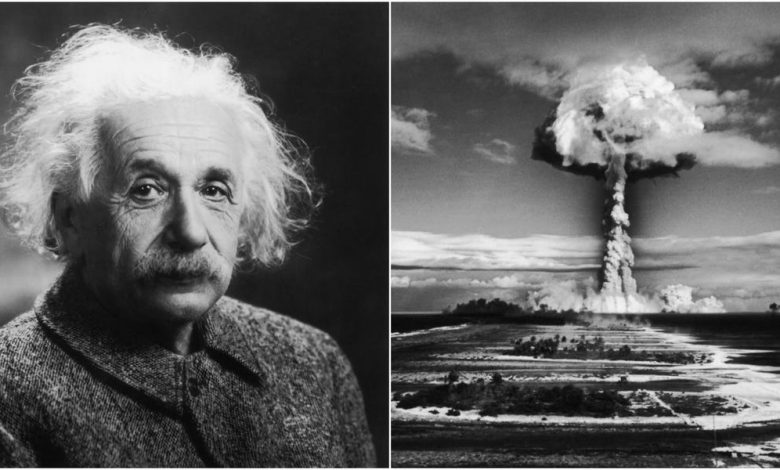Albert Einstein’s Urgent Appeal to the US: Encouraging the Development of an Atomic Bomb

Why Albert Einstein Wrote to the US Begging It to Build an Atomic Bomb
Albert Einstein, the renowned physicist whose theories revolutionized the world of physics, is widely regarded as one of the greatest scientific minds in history. However, his involvement in the creation of the atomic bomb is often a topic that raises many questions and ethical debates. Einstein’s famous equation, E=mc², laid the foundation for the development of atomic energy, ultimately leading to the creation of the atomic bomb during World War II. But why did Einstein, a man known for his pacifism and opposition to war, write to the United States government begging them to build such a destructive weapon?
Einstein’s involvement in the atomic bomb project can be traced back to the growing concern over the rise of Hitler and Nazi Germany in the early 1930s. As a German Jew who had already experienced anti-Semitic persecution in his own country, Einstein understood the grave threat posed by Hitler’s regime. Fearing that Germany would develop atomic weapons ahead of the Allies, Einstein, in collaboration with Leo Szilard and other scientists, sent a letter to President Franklin D. Roosevelt in 1939, urging him to initiate research into atomic energy.
In their letter, Einstein and his colleagues warned that the discovery of atomic energy could lead to the development of powerful bombs capable of immense destruction. They believed it was crucial for the United States to be at the forefront of this research to prevent a catastrophic imbalance of power in the world. They believed that if Hitler were to acquire atomic weapons, the consequences would be devastating. In their letter, Einstein and his colleagues highlighted the potential military applications of atomic energy and emphasized the need for the United States to invest in research in order to prevent such weapons from falling into the wrong hands.
Einstein’s motivations behind writing this letter can be seen as a mix of scientific, political, and personal reasons. On one hand, there is a scientific curiosity driving him. Einstein was aware of the immense power that could be harnessed from atomic energy and understood the potential benefits it could bring to humanity if used peacefully. He keenly understood the scientific implications of atomic energy and felt that the United States should not allow Germany to hold an advantage in this area.
On another level, Einstein also possessed a deep concern for the welfare and safety of humanity. By urging the United States to develop atomic weapons, Einstein believed that they could deter Germany from pursuing their own atomic bomb and potentially help end the war more quickly, saving countless lives in the process. His hope was that the threat of atomic power would serve as a deterrent, leading to peace rather than protracted conflict.
Furthermore, Einstein’s Jewish heritage likely played a role in his decision to support the United States’ atomic bomb project. As a German Jew who had witnessed the horrors of the Holocaust and suffered at the hands of the Nazis, he recognized the importance of defeating Hitler’s regime. From his perspective, the short-term devastation caused by the atomic bomb seemed a lesser evil than the long-term consequences of Hitler having such a weapon at his disposal.
In retrospect, Einstein expressed regret over his role in advocating for the creation of the atomic bomb. He realized the immense destruction it caused when the bombs were dropped on Hiroshima and Nagasaki, leading to the deaths of hundreds of thousands of people. The consequences of his actions forced him to confront the ethical implications of scientific discovery and the responsibility scientists have in the application of their creations.
In conclusion, Albert Einstein’s decision to write to the United States government urging the development of the atomic bomb was driven by a mix of scientific curiosity, political concern, and a desire to protect humanity from the potential devastation of Germany possessing such a weapon. While his intentions were driven by the desperate circumstances of the time, Einstein later expressed remorse over his role in the creation of this destructive force. His actions during World War II serve as a poignant reminder of the ethical dilemmas that scientists may face when confronted with the consequences of their discoveries.




